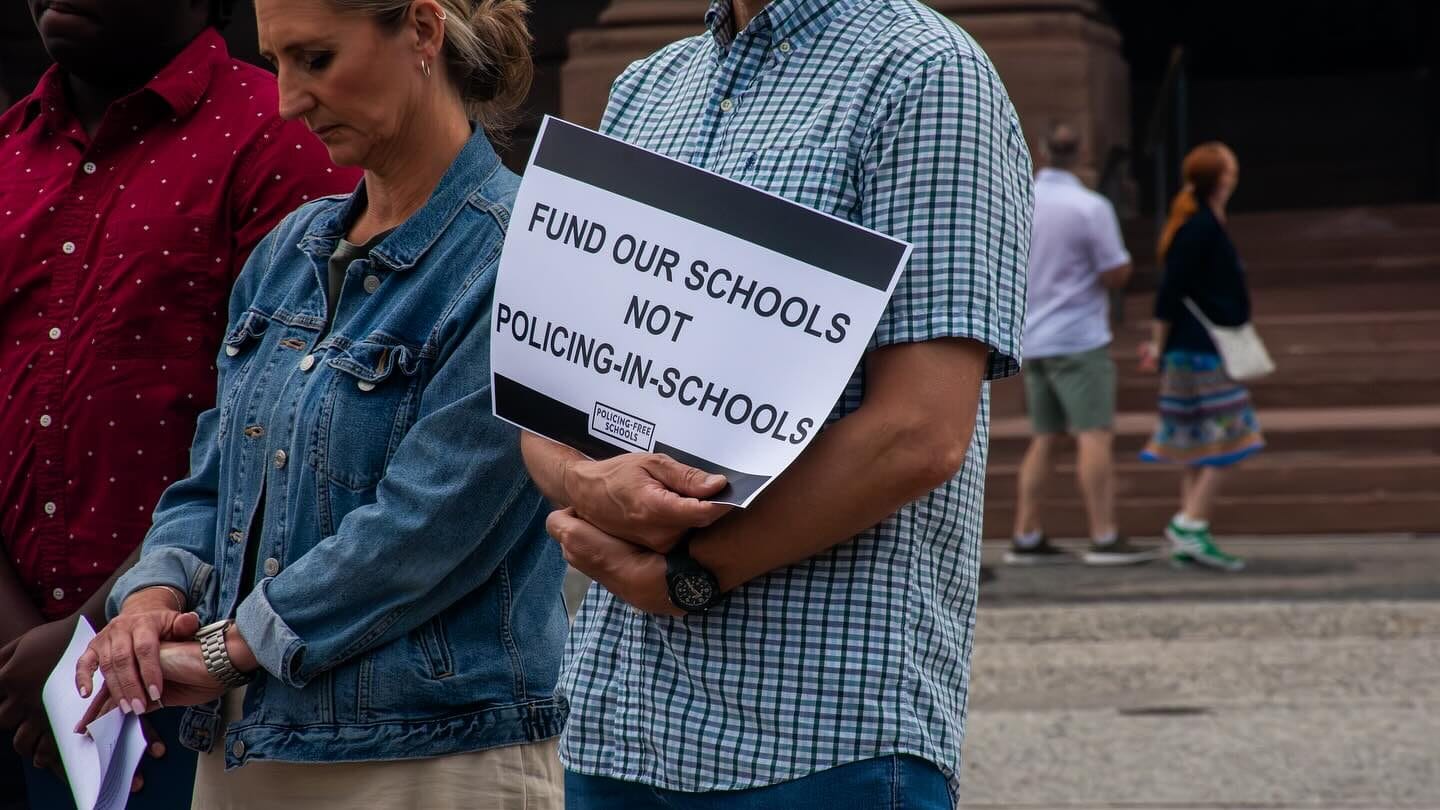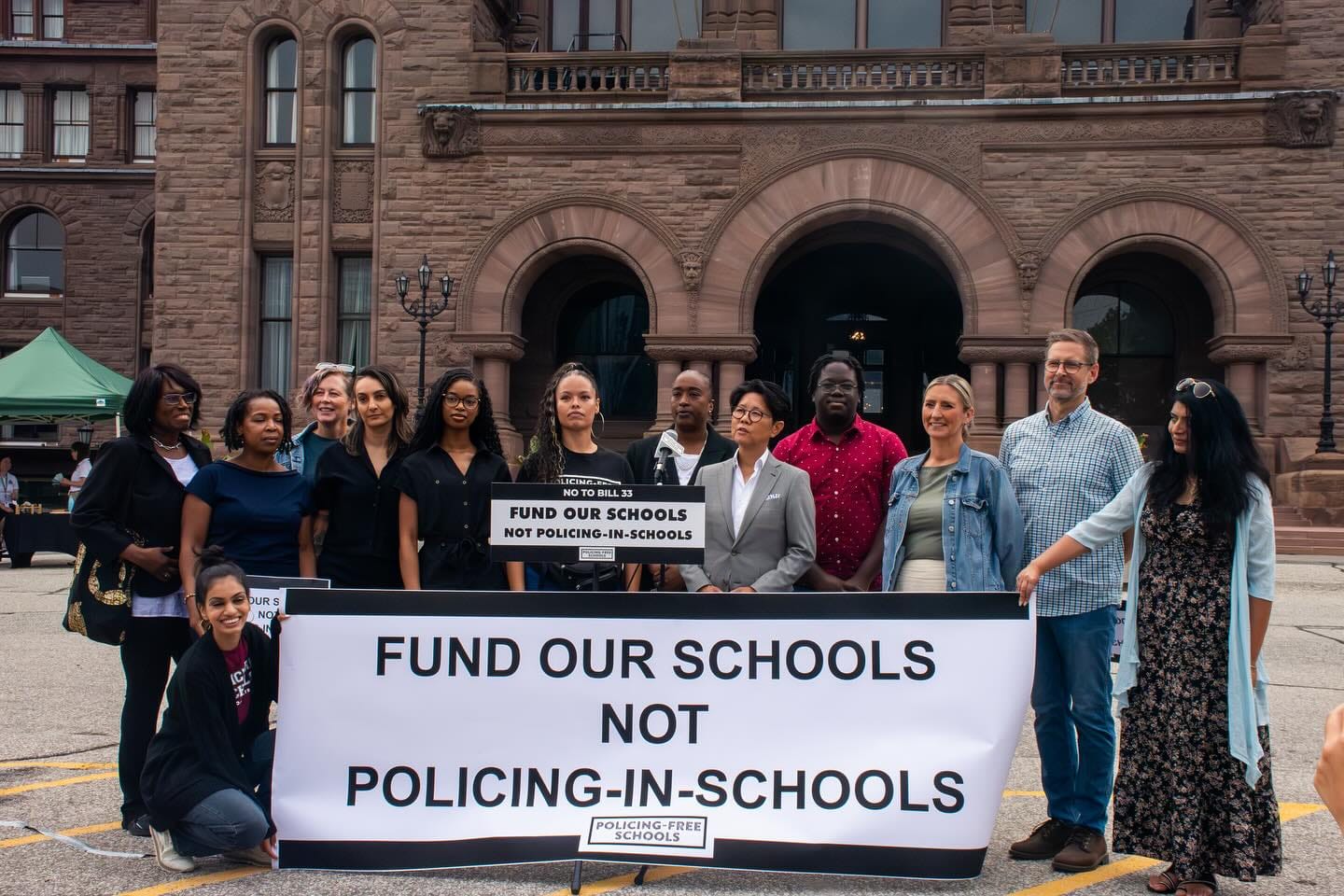With one month left until the Ontario legislature resumes, students, educators and activists involved with Policing-Free Schools held a teach-in and rally outside Queen's Park on the morning of August 27, urging Premier Doug Ford and Education Minister Paul Calandra to repeal Bill 33.
“I come here today full of rage,” said former student trustee Ahona Mehdi to a crowd gathered outside the Ontario Legislature. Mehdi was one of seven speakers at the event organized by Policing-Free Schools Ontario three months after the introduction of Paul Calandra’s Bill 33.
Bill 33 is a piece of sweeping legislation that would centralize decision-making in the hands of the government and mandates, among other things, the re-introduction of School Resource Officer (SRO) programs across all publicly funded school boards in Ontario. All schools located in areas where the local police department offers SRO services would be forced to allow the placement of police officers in schools.
The Bill will be voted on when Parliament returns in October. Unions, public system educators and parents are raising their concerns. Among them are many of the same faces who fought for and won the cancellation of school officer programs in 2017 in the midst of the Black Lives Matter movement.
Despite its title, Calandra’s “Supporting Children and Students Act” contains no solutions for ongoing issues within Ontario’s public education system. These include chronic underfunding, burnout in education workers, deteriorating infrastructure in Toronto schools that has led to teacher and student walkouts, and the halting of admissions at a high school for disabled students. Rather, the bill is seen as another step toward increasing police budgets in response to problems caused by years of cutbacks.

Director of Policing-Free Schools, Andrea Vasquez Jimenez, said that when inflation and enrollment are taken into account, Doug Ford’s government has removed $7.3 billion from public education since 2018.
For example, cuts to Educational Assistants and other trained support staff in Ontario's school boards, means that teachers are overworked, receive low wages and deal with larger and larger class sizes. They are often unable to meet the needs of disabled students and those who require medical monitoring or behavioural assistance.
“The response is to bring in police, or the response is punishment, whereas if schools were properly funded and had enough EAs, had enough special education supports, students wouldn’t ‘lash out’ or have meltdowns that are perceived as violence but are actually responses to the mistreatment and violence that they are experiencing within schools,” explains Mehdi.
In addition to reinstating the police officer program, Bill 33 would give the Minister of Education far more power and oversight within school boards. This would include the regulation of post-secondary fees and authority to go over the heads of elected trustees to investigate school board affairs. Speakers at Wednesday’s teach-in say Bill 33 is part of a larger attempt by Ford’s government to eliminate school trustees and even school boards entirely.
Last month, Paul Calandra told media that “everything is on the table” when it comes to reforming school governance and that “if it looks like we can deliver the product better,” he would not hesitate to eliminate school trustees.
In 2017, after nearly a decade of organizing to remove police from schools, many school boards in Ottawa, Hamilton, Durham, York, and Guelph, among others, cancelled their police in schools programs.
“We know that this bill is being brought forth now because the province wants to strip even our limited forms of [democratic] participation away,” commented Ahona Mehdi. “They know that youth have organized and that we’ve won and that we can win again. And they’re scared. They want us burnt out. They want us siloed and they want us silent. And this is their attempt to centralize power and to de-centre student voices.”
As the province invests more and more in policing, Ahona Mehdi, speaking to The North Star, asked, “What else could we do with those funds? Food programs? Accessible transit? More outdoor spaces or funding for arts programs? Kids are going to school hungry. There are teachers who are paying out of pocket for school supplies. So what does it mean to properly invest in our education?”


